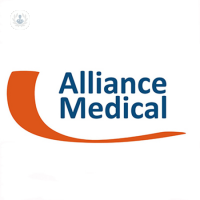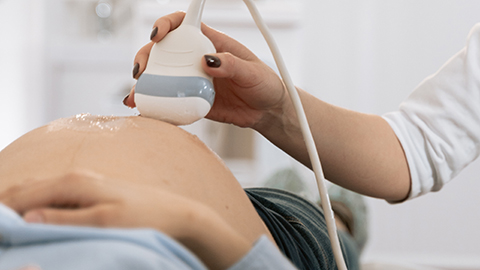Ultrasound scan - 1 area
An ultrasound scan is a diagnostic tool using high frequency sound waves via a handheld scanner to see different parts of the body. An ultrasound is particularly useful for different parts of the body including the liver, pelvis, kidneys, gallbladder, musculoskeletal areas such as to the joints, and for checking blood flow through blood vessels.
What important information do I need to inform the clinic of before the scan?
You should inform the clinic if you have previously had an ultrasound scan in the last 6 months, or if you are diabetic.
How do I prepare for the ultrasound scan?
Depending on the areas that needs to be scanned, it may be necessary to prepare for the scan in a number of ways, for example: if you are having a scan of your pelvis, kidneys, or bladder, you will need to ensure that your bladder is full for the scan, and if you are having a scan on your gallbladder or pancreas, it may be required that you don't eat anything for a few hours before the scan.
The clinic will inform you in writing before the scan of the ways in which you need to prepare.
You may bring a friend or companion with you for the scan, if this helps you to feel more comfortable. Arrive in plenty of time before your scheduled appointment time, and bring your appointment letter with you.
The clinic will inform you in writing before the scan of the ways in which you need to prepare.
You may bring a friend or companion with you for the scan, if this helps you to feel more comfortable. Arrive in plenty of time before your scheduled appointment time, and bring your appointment letter with you.
What happens during the ultrasound scan?
After you have checked in at the reception, a member of the team will explain everything to you, make sure that you are comfortable, and ask you to fill out the safety questionnaire. You will be provided with a space to leave your personal possessions.
A sonographer will explain everything to you and will be on hand to answer any questions you may have, and will explain everything during the process, and ensure that you are comfortable.
If you begin to feel uncomfortable from not going to the toilet in the hours before the scan, please let a member of the clinic staff know.
If intimate parts of your body are required to be scanned, a chaperone of the same sex can be present. If there is not one present, please feel free to ask for one.
No injections are required for an ultrasound scan.
For the scan itself, you will be asked to lie down on a bed in a position that is suitable for the area being scanned, and a cool, water-based gel will be applied to your skin in the area that is to be scanned. This is to help the scanner to glide over the skin more easily. The lights may be dimmed to allow us to see the images on the screen more clearly.
You may be required to breathe deeply and hold your breath for a few moments while the scan is taking place. You may be asked to drink more liquid if your bladder isn't full enough.
Some pressure may be applied to the skin which could cause some discomfort of the affected area.
The scan should last around 30 minutes.
A sonographer will explain everything to you and will be on hand to answer any questions you may have, and will explain everything during the process, and ensure that you are comfortable.
If you begin to feel uncomfortable from not going to the toilet in the hours before the scan, please let a member of the clinic staff know.
If intimate parts of your body are required to be scanned, a chaperone of the same sex can be present. If there is not one present, please feel free to ask for one.
No injections are required for an ultrasound scan.
For the scan itself, you will be asked to lie down on a bed in a position that is suitable for the area being scanned, and a cool, water-based gel will be applied to your skin in the area that is to be scanned. This is to help the scanner to glide over the skin more easily. The lights may be dimmed to allow us to see the images on the screen more clearly.
You may be required to breathe deeply and hold your breath for a few moments while the scan is taking place. You may be asked to drink more liquid if your bladder isn't full enough.
Some pressure may be applied to the skin which could cause some discomfort of the affected area.
The scan should last around 30 minutes.
What happens after the ultrasound scan?
Following the scan, you can return to your normal activities without restrictions. There are no restrictions to eating, drinking, driving, or physical activity. The scans will be sent to your doctor or consultant following the procedure. Only your doctor or consultant can discuss the results with you, not the staff at the clinic.
Procedures
Non-refundable product
You have 90 days to use the service
Legal terms and Privacy policies


